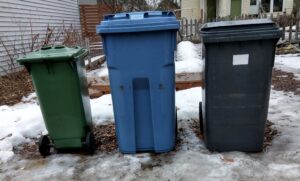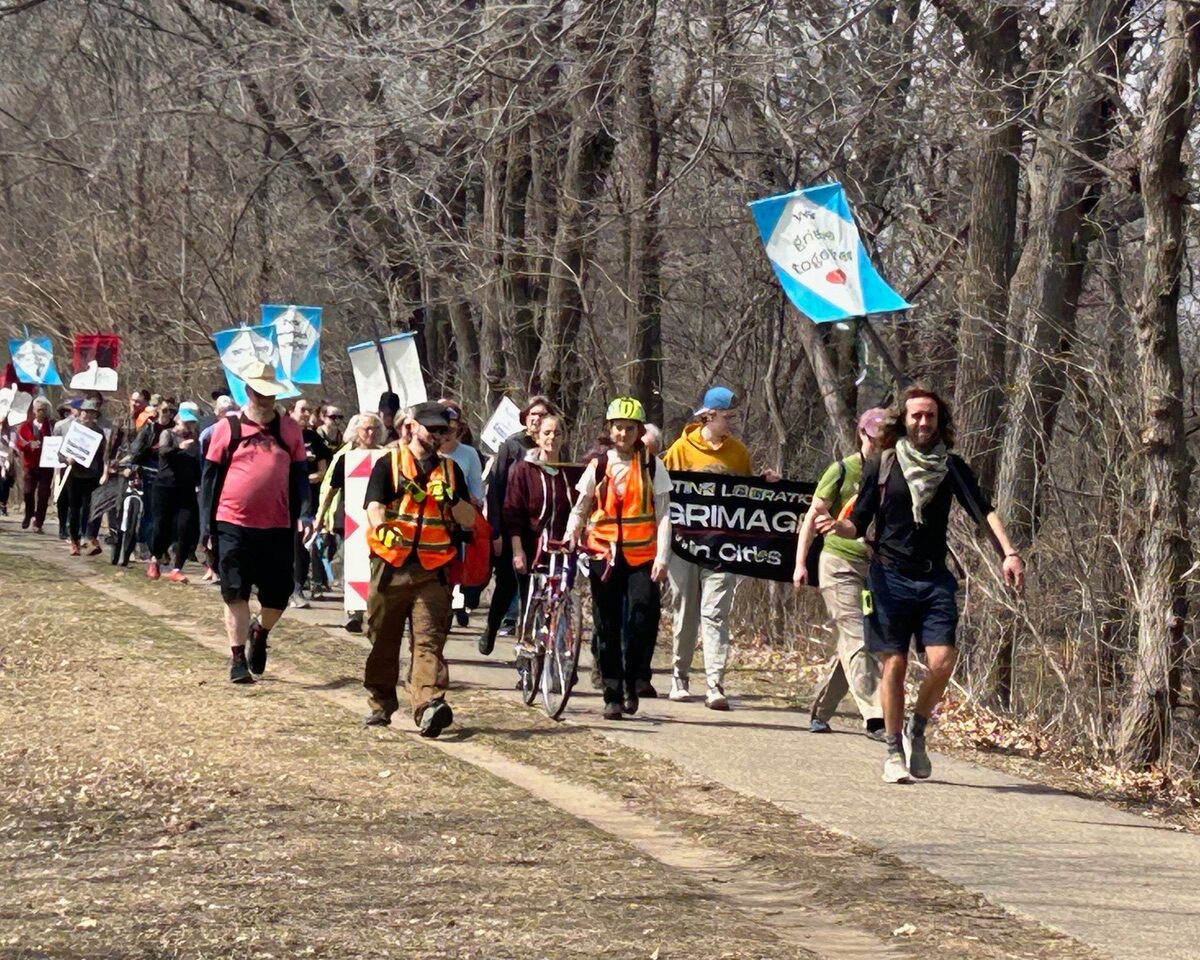BY ELINA KOLSTAD
The first Monday of February, about 50 people gathered at Matthews Center to talk some trash. Kellie Kish, recycling coordinator with the City of Minneapolis, Kate Marnach from Tare Market in Standish neighborhood, and Nancy Ford from Repair Lair on East Lake Street and Reuse Minnesota gave presentations about some of the ways the city and individuals are working to reduce the trash we burn and landfill.
The good news is that we are doing well compared to other cities. Ms. Kish provided a number of encouraging statistics. From 2018 to 2019 we had a 1,500-ton reduction in garbage and 2,500-ton reduction in overall waste. The city fully expects to reach a 50 percent sign-up rate for organics pickup in 2020, and annual inspections reveal a contamination rate of less than 1 percent! We also have a high rate of recycling: 97 percent of single family to four-unit housing have a recycling cart. Eureka processes our recycling in St. Paul and 100 percent stays in North America with 90 percent staying in the Midwest and 80 percent staying in Minnesota.
While the global issues with recycling have made the process drastically less profitable, Ms. Kish pointed out that it is still less expensive to recycle what we can than it would be to burn it in HERC. Recycling also offers other benefits such as local job creation. The city has adopted a Zero Waste Action Plan, as yet unfunded, and continues to look at ways to reduce our waste stream.
Ms. Marnach and Ms. Ford focused on actions we can all take as individuals to reduce how much trash we produce. Buy less, buy used, choose quality over quantity. Ms. Marnach’s background is in zero waste, defined by Zero Waste International Alliance as, “The conservation of all resources by means of responsible production, consumption, reuse, and recovery of products, packaging, and materials without burning and with no discharges to land, water, or air that threaten the environment or human health.” Ms. Ford’s advice for living a greener lifestyle was that it goes hand in hand with being cheap. She recommends: buy less, walk more, and menu plan. She also reminded everyone to consider whether they need to buy an item or whether it would serve them just as well to rent or borrow the same item.
Some points of interest from audience questions:
-Battery pickup is not done anywhere else in the country and the practice was discontinued here when some of the batteries started a fire at a Hennepin County library. All types of batteries can be taken to drop-off locations and Kellie Kish will be working hard to expand these sites this year. It is recommended that all batteries be taped with masking or painters tape on both ends.
-Cloth recycling is no longer accepted by Hennepin County. Synthetic fabric blends make reuse and recycling difficult. Fabrics are also largely recycled in other countries and there are ethical concerns about how much the fabrics were truly being recycled and whether they were a positive or a negative for local populations.
-The standard procedure for revoking a recycling bin is that if crews find something obviously inappropriate in a bin they will leave a tag on the bin and inform trash crews to pick up the contents the following week. Then the resident will get a letter from the city in the mail. If the resident continues to put inappropriate items in the bin it will be revoked.
-Plastic bags and similar thin plastic packaging is a serious problem because it catches in the machines that sort the recycling, Ms. Kish used the analogy of a shoelace in a vacuum. When this happens all the machinery has to be shut down, sometimes for as long as six hours, to clean it up.
Minneapolis is doing a good job diverting trash from incineration or landfill. Much of the credit goes to Kellie Kish, who works around the clock, and to our active and informed citizenry and organizations such as Longfellow Community Council’s Environment and River Gorge Committee and the Seward Neighborhood Group’s Environment Committee, who hosted this informative event.
Interested in getting involved? Here are some resources that may interest you:
*Bus tours of organics processing facility in Rosemount every spring. Sign up ahead of time as space is limited. Contact Kellie Kish at 612-673-3536 or [email protected] for more information.
*Volunteer for annual audit of organics pickup (must have strong stomach). Again, contact Kellie Kish for more information.
*Monthly Tours of Eureka Recycling Facility in St. Paul. You can sign up online at https://www.surveymonkey.com/r/CFDJDCF or contact Kellie Kish for more information.
*Hennepin County grant to save materials from home renovation. For more information: https://www.hennepin.us/residents/recycling-hazardous-waste/deconstruction























